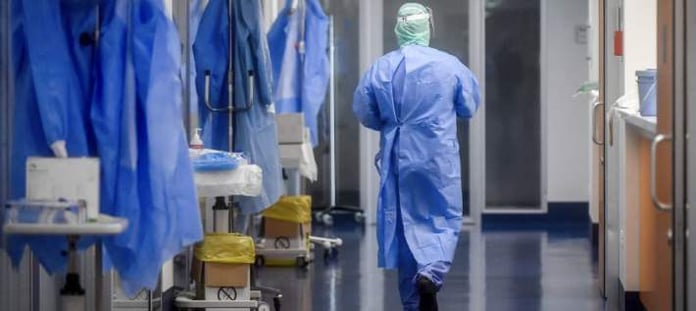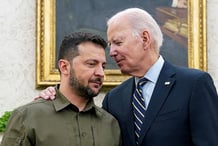
What hope is there in these days? The infection tables and death statistics offer little comfort, on the contrary, and the “exit” calls do not kill a single coronavirus. Medication? The World Health Organization has started the global “solidarity” study with some well-known antiviral substances that have at least provided initial glimpses of light in small tests in Chinese clinics. And the rest? So far it has been called: Gaining time. Everyone can help keep the conflagration small. Kick your feet on the spot, each one separately – physically separate and together. The ultimate social test, everyone is challenged. And the rest should be: waiting for the vaccine, sometimes?
An effective medicine, if it passes the tests as safe and helpful in a few weeks, would be the first extinguishing water. That could help cut the deadly spike in the death curve, at least until the fire department arrives, the Sars CoV-2 vaccines. But there is also another fire-fighting operation, many of which – more and more, the more difficult the situation – promise medical first aid: passive immunization. It’s a kind of donor vaccine. New York governor Andrew Cuomo announced: “We are starting a phase 3 study”. New York, currently the epicenter of the pandemic, will be the first state to use the method on a large scale.
The oldest remedy you can think of
It is an experiment, but not even a new one. An immune donation is the oldest means one can imagine in our situation. Much older than antibiotics, which kill germs but not viruses. Passive immunization is an indirect vaccination by blood donors. The antibodies that the body supplies from cured infected people are obtained with the blood donation and transferred to an acute patient – or just for prevention. The antibodies are the weapons of our immune system against the pathogen. In a way, a vaccine teaches the body to preventively produce such antibodies. But they are also formed in the course of an infection: seven to ten days after infection, the immune cells are ready to produce antibodies to the virus in large quantities. In some patients they come too late or in small quantities, and maybe too weak, then the immune system is of little help. However, in patients who survive, whether after a mild course or a severe,
Hundreds of very seriously ill patients were treated with the blood of recovered influenza patients during the Spanish flu: By transfusion of the blood serum with the antibodies (immunoglobulins), the mortality rate was – at least statistically recognizable afterward – reduced. In the meantime, passive immunization has long been established and developed. Antibody injections are not a panacea, but they are routine: they were used against measles, against polio, mumps, swine and bird flu, and blood serum had also been transmitted against Ebola viruses in West Africa.
So now in the fight against the new coronavirus? In fact, transfusion specialists worldwide are preparing to collect blood donations from people who have recovered from the corona. In the prestigious Journal of Clinical Investigation, New York doctors at the Albert Einstein College of Medicine recently advised urgently to start preparing for the emergency use of antibody therapy as quickly as possible, despite historically contradictory results. Has the effectiveness of immunotherapy been secured? Is it worth collecting blood for immune donation?
One thing is clear: the more former Covid 19 patients can be won over to have blood drawn from them a few weeks after suffering from Covid 19 disease, the greater the potential of immune donation. So you need as many recovered people with whom there is contact. There are more than 140,000 in the corona pandemic worldwide, and at least 4,100 have been registered in Germany to date.











